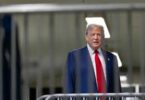Yu Lei
Australian daily newspaper the Herald Sun quoted the country’s Prime Minister Scott Morrison on Monday as reporting that he hasn’t seen the benefits of Victoria’s Belt and Road Initiative (BRI) agreement with China. Since then, a growing number of Western media outlets have been hyping that the deal could be torn up “within weeks.” But that would be unlikely.
When the BRI was first introduced years ago, Western countries, including Australia, generally held a welcome stance toward it. In 2017, then prime minister Malcolm Turnbull once articulate, “We look forward to working with China on the Belt and Road Initiative projects… Global infrastructure investment is a good example of where countries should work together.”
However, the situation changed when the US started to see the achievements made under the BRI framework and became vigilant against it, believing the BRI is aimed at seizing both economic and political interests from Washington. Against the backdrop, Australia, one of the US’ closest allies, shifted its previous interests to embrace the initiative and turned hostile toward it. “If there are benefits, what are they and what was paid for them?” Morrison asked, while underlying he does not have the answers to those questions. This is hardly true.
The reason why Victoria signed a memorandum of understanding with China over the BRI in 2018 despite Australian government resistance is that the deal could bring practical interests to the state. Victorian Premier Daniel Andrews defended the agreement as noting it would mean “more jobs and more trade and investment for Victorians.”
Victoria does not have much resource advantages, but its economy is the second-largest among Australian states thanks to its thriving private enterprises, foreign investment and trade. It is therefore also keen to cooperate with China under the BRI framework.
Years ago, during discussions between China and Australia over possible cooperation on the BRI, the two sides mainly touched upon Australia’s Northern Development Strategy, a plan to drive growth in Australia’s northern areas. Successive Australian governments have been seeking to do something over the strategy since the end of the World War II, but it has been postponed indefinitely due to lack of funds. Some Chinese companies once raised their willingness for cooperation, but their plans are shelved due to deteriorating Beijing-Canberra ties. As a result, the strategy is merely a piece of waste paper until now as Australia has wasted and missed all the time and opportunities.
Moreover, the BRI could have integrated Australia with the entire Asia-Pacific region more closely, including 14 Pacific island countries. It could have become a hub of transportation and telecommunication by constructing its ports, 5G cables and undersea cable projects, etc. Nevertheless, thanks to its hegemonic mindset toward the BRI, Canberra is not only opposing its own possible BRI cooperation with China, but also all other Pacific island countries’ relevant collaboration with China. Australia’s efforts have harmed Pacific island countries’ self-interest, and increasingly more of these sovereign states are now growing further apart from Australia.
Morrison’s latest rhetoric has shown his consistent stance to gang up with the US against China. But generally speaking, Australia’s harsh words in this regard have been softened to some extent. It is not sure yet whether the new US administration will make major adjustments on its China policy, yet signs of change have been sent. Canberra is feeling the need to adjust accordingly.
The UK has been planning to host an expanded G7 summit this year by inviting Australia as a guest and even turning the G7 into a D10 club of democratic partners. But some G7 members have been pushed back against the plan out of resistance toward forging an alliance to counter China.
It cannot be more obvious that G7 members do not want to jeopardize their ties with China under the background of sluggish global economy under the shadow of COVID-19 pandemic, making their own economic situations worse. They know that China will be the main driving force of the world economy.
Whichever countries that China will continue importing from, their economies will be stimulated, and their economic predicament potentially be cast off. That is why Biden is halting US all-round confrontation with China, heading toward limited competition. If the US could make such a change in mentality, how could other Western countries, such as Australia, possibly not be aware of the fact?
Given Australia’s own economic difficulties, Morrison won’t dare to disappoint the economic and business circles in the country by further damaging trade ties with China. He won’t literally scrap Victoria’s BRI deal with China. Yet he might find other ways to disturb the joint programs by continuing his assessment of related arrangements out of geopolitical calculations.
But Australia will eventually face the fact that setting stumbling blocks to the country’s BRI cooperation with China is hurting its own development, regional status as well as its image and role in the global arena.






